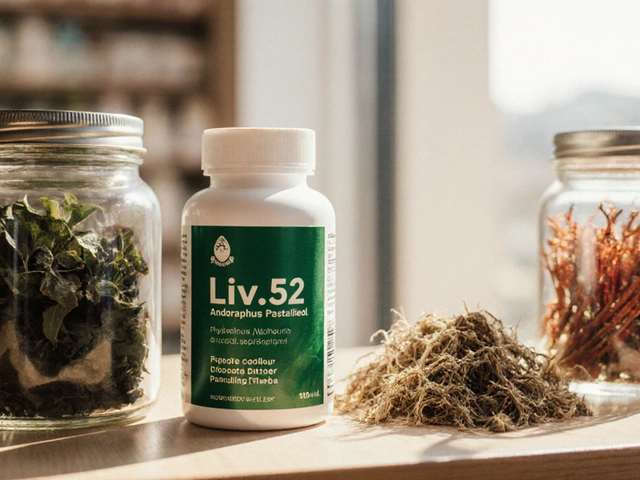Wormwood – What It Is, How It Helps, and How to Use It Safely
Ever heard of wormwood? It’s the bitter green plant that gave the world absinthe and has been used for centuries to settle stomachs and chase parasites. Today it shows up in teas, capsules, and essential oils, promising everything from better digestion to a natural boost for your immune system.
Top Benefits of Wormwood
The first thing people notice about wormwood is its strong flavor, but the real value lies in its active compounds, especially artemisinin. Artemisinin is the same ingredient that fights malaria, so researchers keep an eye on wormwood for anti‑infective power. For most of us, the practical perks are simpler: a cup of wormwood tea can calm nausea, ease bloating, and support regular bowel movements.
Another popular use is as a natural insect repellent. The oil’s sharp scent keeps flies and mosquitoes at bay, making it a handy addition to homemade sprays. Some athletes even use a low‑dose wormwood extract to help reduce inflammation after a tough workout, though the evidence is still emerging.
Safety Tips and How to Use Wormwood
Before you start sipping, know that wormwood can be potent. High doses of the raw herb contain thujone, a compound that can cause nervous system irritation if you take too much. Most commercial teas and capsules limit thujone to safe levels, but it’s still wise to start with a small amount—say, a half‑teaspoon of dried herb or one capsule—and see how you feel.
If you’re pregnant, nursing, or have a seizure disorder, skip wormwood unless your doctor says otherwise. The plant can also interact with blood‑thinners and some antidepressants, so a quick chat with a pharmacist can save you trouble.
When buying, look for products that list the exact species (Artemisia absinthium) and provide a thujone‑free label or a clear concentration figure. Reputable brands will also include a batch number and a contact for quality questions.
To make a simple tea, steep one teaspoon of dried wormwood in hot water for five minutes, then strain and drink. You can add a bit of honey or lemon to mask the bitterness. For a stronger effect, try a capsule that delivers 100‑200 mg of standardized extract once a day.
Remember, wormwood isn’t a cure‑all. Use it as a supplement to a balanced diet, not a replacement for medical treatment. If symptoms persist, see a health professional—especially for chronic digestive issues or infections.
In short, wormwood offers a mix of ancient herbal wisdom and modern science. With the right dose and careful sourcing, it can be a useful tool for digestive health, natural pest control, and occasional immune support. Treat it like any other supplement: start low, watch for side effects, and keep your doctor in the loop.

Unlocking the Benefits of Wormwood: Why This Supplement Works Wonders
This article uncovers the science behind wormwood, exploring what makes it such an effective dietary supplement. By examining its active ingredients, health benefits, applications, and potential side effects, readers will gain a deeper understanding of this powerful herb. Learn valuable tips on incorporating wormwood into your wellness routine.




